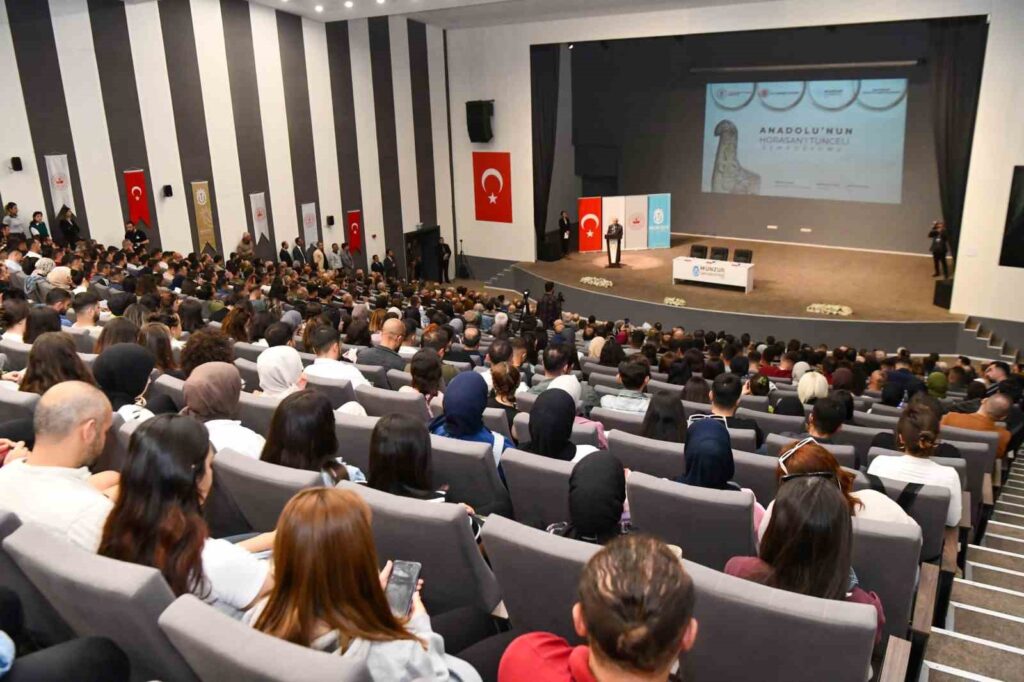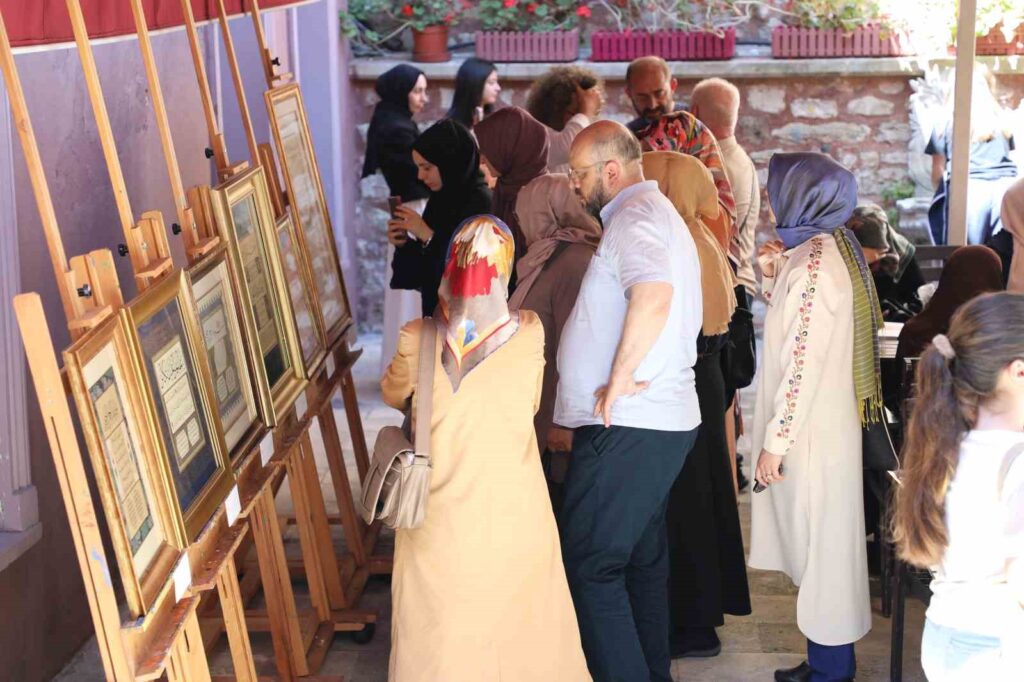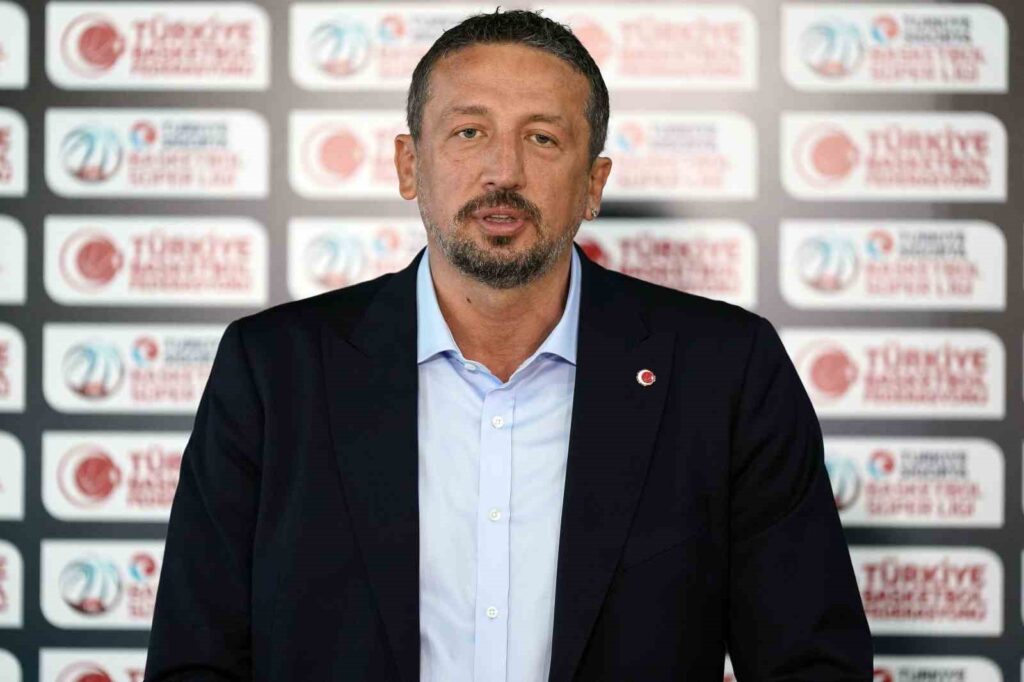The ‘Anatolia’s Khorasan’ symposium started in Tunceli, which will last for 2 days.
The symposium ‘Anatolia’s Khorasan Tunceli’, organized by the Ministry of Culture and Tourism, Tunceli Governorship, Munzur University, and the Alevi-Bektashi Culture and Cem House Presidency, has started at the Munzur University Campus and will last for 2 days…

The symposium titled ‘Anatolia’s Khorasan Tunceli’, organized by the Ministry of Culture and Tourism, Tunceli Governorship, Munzur University, and the Alevi-Bektashi Culture and Cemevi Presidency, has started at the Munzur University campus and will last for 2 days. Many academicians from various universities in Turkey will participate in the symposium.
The symposium commenced with the participation of Governor Bülent Tekbıyıkoğlu, Munzur University Rector Prof. Dr. Kenan Peker, Alevi-Bektashi Culture and Cemevi President Ali Rıza Özdemir, academicians, mayors, representatives of political parties, and civil society organizations.
In his opening speech, Tunceli Governor Bülent Tekbıyıkoğlu stated that they wanted the symposium to encompass not only belief but also the traditions, customs, hospitality, farewell, and language of the city, and mentioned that some of these aspects are included in the content. Addressing criticisms regarding the homogenization of the symposium, Governor Tekbıyıkoğlu said, “On the contrary, we want everything to live with its richness. The world is facing a great threat; everyone is becoming homogenized. Even though I grew up in Ankara in my childhood, there were no places selling hamburgers or pizzas. Now everyone has started to eat the same thing. People have started to wear the same clothes. To be honest, the richness and colors we had a hundred years ago are being lost to the world. We must preserve our riches and identities.”
Emphasizing the cultural DNA of the city, Governor Tekbıyıkoğlu stated, “If there are no ram-headed or horse-headed gravestones anywhere else in Turkey, but they are still used in Tunceli, and if they exist in the Turkistan region, these are cultural DNA. We embarked on this journey to reveal all of these. If anyone has something to say, of course, they should speak up, but we will present what scientific research shows. Hopefully, we will not lose our colors. Here, we are actually resisting the homogenization of the world.”
Munzur University Rector Prof. Dr. Kenan Peker noted that the preparations for the symposium have a history of 6 months, saying, “During this time, the part of preparing the essence, the purification phase with 53 presentations by our esteemed scientists today, and then the enrichment and materialization phase will take place. This material will be a treasure of a beautiful culture. The important thing is to be able to convey this to the younger generations as history and education.”
Alevi-Bektashi Culture and Cemevi President Ali Rıza Özdemir addressed the youth, stating, “No one knows your lineage, ancestry, and where you came from better than your ancestors, your father, or your grandfather. As a researcher, I have heard hundreds of times that Alevi-Bektashi communities express their origins from Khorasan, not only in Tunceli but throughout Anatolia and Turkey. Therefore, the concept of Khorasan is a powerful code that has lived in the memory of the Alevi-Bektashi community as a blessed geography for centuries. It is not a name that was later declared or produced. Because we have hundreds of documents related to this, and we know that it has been repeated millions of times in this region and in Tunceli. Both those who advocate for it and those who do not know it. We will respect and value the information passed down through oral culture from their ancestors and grandfathers and will move forward. We will also convey this to our children. We will together pass on the origin of the concept of Khorasan to the next generation.”
After the opening speeches, the presentations began. Many academicians will make various presentations as part of the symposium lasting for 2 days.







